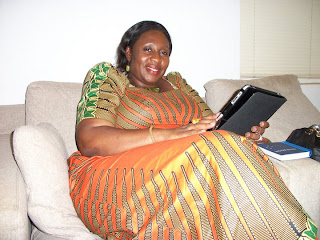| Commonwealth chief condemns homophobia Welcome speech at UN Human Rights Council in Geneva London & Geneva - 29 February 2012 "We welcome Kamalesh Sharma's reiteration at the UN that homophobia is incompatible with Commonwealth values. This sends a signal from the top that victimisation on the grounds of sexuality is unacceptable. It's good to hear this commitment to LGBT human rights being voiced at the UN," said human rights campaigner Peter Tatchell, Director of the Peter Tatchell Foundation. He was commenting on today's speech by the Commonwealth Secretary General, Kamalesh Sharma, to the UN Human Rights Council in Geneva, where Mr Sharma spoke out against sexual orientation "discrimination or stigmatisation." See his key points below. The Secretary General had been lobbied in advance of his UN speech by the Peter Tatchell Foundation, with a request that he include support for lesbian, gay, bisexual and transgender (LGBT) human rights in his speech. Mr Tatchell added: "Compared to the statements on LGBT human rights made by other international leaders such as Hillary Clinton and the UN High Commissioner for Human Rights, Navi Pillay, Mr Sharma's criticisms of homophobia were too brief and too general. He did not rebuke the more than 40 Commonwealth countries that continue to persecute LGBT people. His speech made no mention of transphobia and the need for protection against discrimination based on gender identity," said Mr Tatchell. Kamalesh Sharma is Secretary General of the Commonwealth association of 54 nations, most of which are former British colonies and 80% of which have retained draconian colonial-era homophobic laws that criminalise homosexuality. "The penalties include 25 years jail in Trinidad and Tobago and 20 years plus flogging in Malaysia. Six Commonwealth countries stipulate life imprisonment: Sierra Leone, Tanzania, Pakistan, Uganda, Bangladesh and Guyana. In parts of Nigeria and Pakistan, same-sex relationships can be punishable by death. "There are, or have been, homophobic witch-hunts in several Commonwealth countries: Nigeria, Cameroon, Uganda, Zimbabwe, Malawi and Ghana. "Commonwealth states account for more than half of the countries in the world that still outlaw same-sex relationships," noted Mr Tatchell. The key points of Mr Sharma's speech are: "The Commonwealth is a leader in adding to global value through this collective striving for human rights. The Affirmation introduced a shared commitment on human rights "...for all without discrimination on any grounds..... "Discrimination on the grounds of sexual orientation is an area of concern on which we have given the perspective of Commonwealth values in various fora, including in this Council. "Our position continues to be that we oppose discrimination or stigmatisation on any grounds, including those of sexual orientation. It is for member states to address incompatibilities between Commonwealth values and mostly inherited national laws in these areas." See the full text of Kamalesh Sharma's speech here: Following previous lobbying by Peter Tatchell and the campaign group, Justice for Gay Africans, Mr Sharma spoke out against homophobia three times in 2011. "The Peter Tatchell Foundation is campaigning against all human rights violations in Commonwealth countries, including homophobia and transphobia. We are working to secure adherence to universal human rights by the 54 member states," added Mr Tatchell. "Too many Commonwealth countries sanction state executions, censorship, torture, detention without trial and restrictions on free speech and the right to protest - as well as officially endorsed discrimination based on ethnicity, gender, sexuality and religion or belief. "This has to change. Commonwealth countries have a duty to adhere to Commonwealth values and abide by the international human rights laws they have signed and pledged to uphold," he said. | 



 Peter Tatchell Foundation | can be contacted | in | London at | peter@petertatchellfoundation.org | United Kingdom
Peter Tatchell Foundation | can be contacted | in | London at | peter@petertatchellfoundation.org | United Kingdom



Comments
Post a Comment